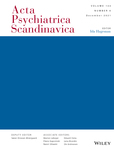Nonadherence/discontinuation of antipsychotic (AP) medications represents an important clinical issue in patients across psychiatric disorders, including schizophrenia spectrum disorders (SSDs). While antipsychotic-induced weight gain (AIWG) is a reported contributor to nonadherence, a systematic review of the association between AIWG and medication nonadherence/discontinuation has not been explored previously.
A systematic search was conducted in MEDLINE, EMBASE, PsychINFO, CINAHL, and CENTRAL databases, among others, to help identify all studies which explored adherence, study dropouts, AP switching and/or discontinuations attributable to AIWG among individuals with severe mental illness. A meta-analysis was also completed where applicable.
We identified two categories of studies for the meta-analysis. Category 1 included three studies, which compared measures of AP adherence or discontinuation across BMI classes/degrees of self-reported weight gain. When compared to normal weight individuals receiving APs or those who did not report AIWG, individuals who were either overweight or obese or reported weight gain in relation to AP use had an increased odds of AP nonadherence (OR 2.37; 95% CI 1.51–3.73; p = 0.0002). Category 2 had 14 studies which compared measures of discontinuation related to weight gain reported as an adverse effect across different APs. Olanzapine was associated with a 3.32 times (95% CI 2.32–4.74; p < 0.00001) increased likelihood of nonadherence or discontinuation when compared to other APs with lower weight gain liabilities. Similarly, APs with moderate weight gain liability (paliperidone, risperidone, and quetiapine) increased the odds of nonadherence or discontinuation by 2.25 (95% CI 1.31–3.87; p = 0.003) when compared to APs considered to have lower weight gain liability (i.e. haloperidol and aripiprazole). The qualitative summary also confirmed these findings.
This review and meta-analysis suggests that AIWG influences medication nonadherence/discontinuation, whereby APs with higher weight gain liability are associated with nonadherence/discontinuation. Additional studies are needed to confirm these findings.



